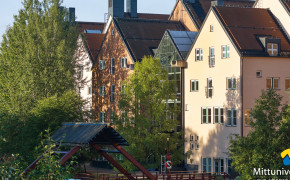KTP – Knowledge Transfer Partnership is a University Business Collaboration for Sustainable Knowledge Exchange in the energy field.
In order to be competitive Small and Medium enterprises (SME) need to be more energy efficient, and transform their production to the new demands of the low carbon economy. Not all of the SME’s have resources (time, money and knowledge) to work with these issues themselves. The SMEs have needs to strategic development in areas of: Products or services, New customers or markets, and Processes or personnel. Newly Graduated student is recruited to be the project leader and support the SMEs. They work for six months up to two years. They get 100%, commercial salary, and the company pay 50% of the salary and the project 50 % There is an Academic Coach attached to the project, a researcher who works 4 hr./week. If needed, a Business Coach can be connected to the project, 4 hours a month. The project manager also can get help from a process leader at the Mid Sweden University and IUC-ZGROUP (an association of around 60 SMEs), situated in the county. KTP Energy Sweden is a national project for developing low-carbon companies . KTP (Knowledge Transfer Partnership) is a collaboration model used in the UK for 40 years and Dalarna University has worked with in Sweden for 10 years. The pilot with the five nodes is the first national project. KTP is a knowledge broker between SMEs and the academy, which in addition to young academics getting jobs in the region's SMEs leads to spin offerings such as development of research, degree projects, internships, guest lectures, study visits.
Resources needed
The Swedish KTP project has a turnover of 30 msek. The node in Jämtland cost 4,9 msek. ERDF in NUTS SE 32, finance 50% .The region of Jämtland co-finance 1,8 msek. Companies pay 50% of the salary costs for project managers. The project pay the other 50%. The coaches are paid by the project.
Evidence of success
- 13 companies have received help from newly graduated project managers
- 7 newly graduated project managers run projects at these companies
- 3 projects have been completed and the project managers have been employed by the project companies
- 9 researchers at Mid Sweden University have participated and established new contacts with the region's SME
- A research paper has been written and 4 dissertations have so far been linked to one of the KTP projects
Difficulties encountered
The students from the Mid Sweden university are well trained but it is very important that the coaching from the researchers and business people really works. It is not possible to do this without coaching. To get the coach to allocate time is always a challenge.
Potential for learning or transfer
KTP is a model which creates advanced development that makes sure that the -businesses and others can work at the forefront (and drive) of development in its sector and region. *The company will get new academic competence to solve a strategic need! *KTP results in that new competence either is added or remains in the region. *Creates a region that is more attractive for academics and investors. *The project has resulted in reduced energy usage for participating companies or their customers while improving profitability. The leaning is that it is essential to have organisations which allocate coordinators that support both academic and business coaches, SME and the project manager. Mid Sweden university has one coordinator and the association of SME ( IUC-Zgroup) has another. They complement each other which facilitates the technology and knowledge transfer between the actors.
Tags: Energy efficiency, Production, SME, Technology








